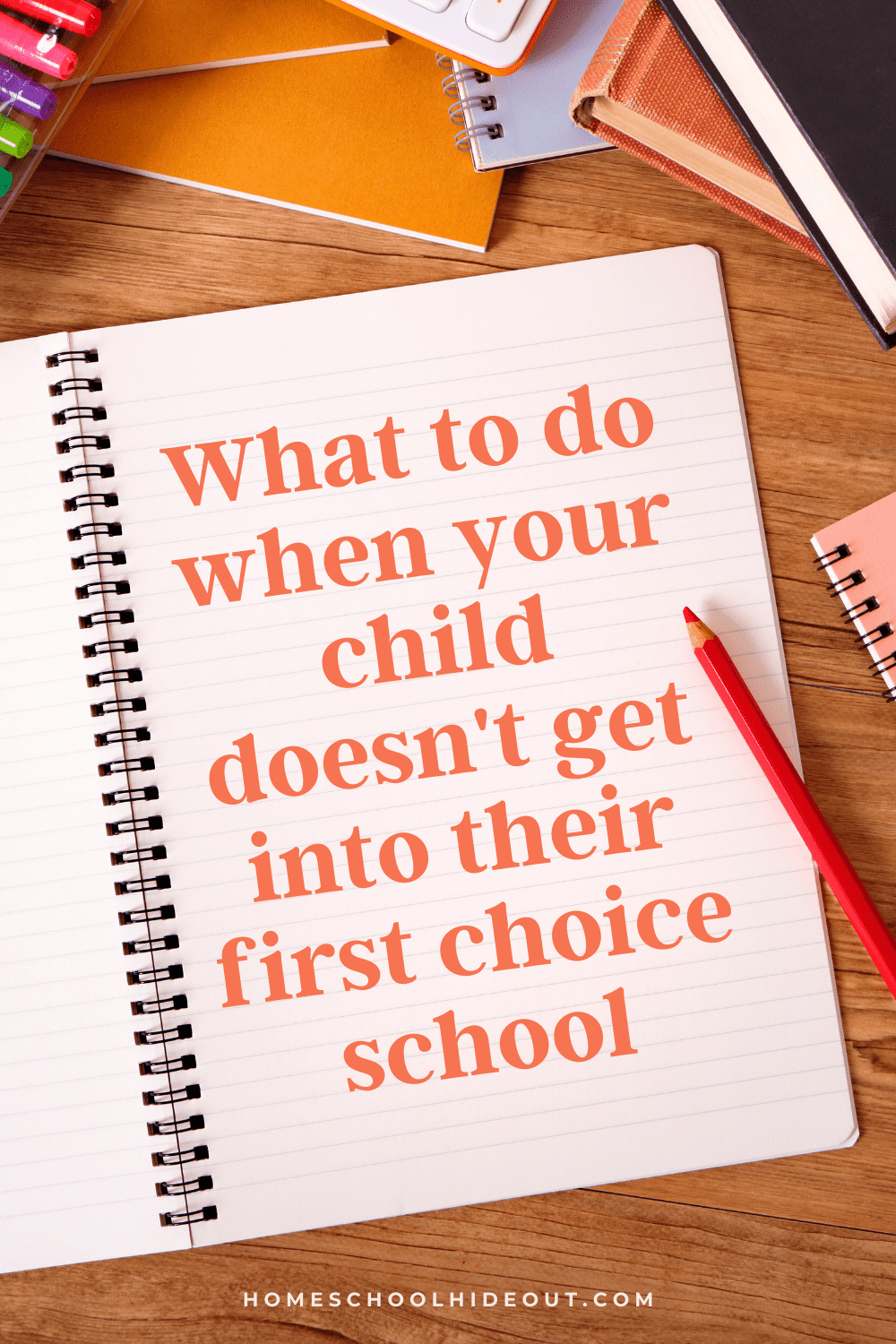Having trouble with getting your child’s first choice school? These three alternative options might just help you out…
Choosing a secondary school for your kids is both exciting and nerve-wracking. There’s just so much to consider, including where their friends are going, what the teaching is like, how accessible it is to get to, and so on. So, when things don’t work out as planned, it can be very stressful and upsetting.
School admission appeals should always be your first port of call if your child doesn’t quite make it into their first school. We’ll go into this in a little more detail in this article. That said, this won’t always work, which is why having an action plan is key.
Today, we’ll explore your options for if this happens, and let you know how to go about remedying the problem.

What To Do When You Don’t Get Your First Choice School
Option 1: Make a School Admission Appeal
First thing’s fist, you’ll want to appeal the government’s decision to see if you can convince them of your reasons to be admitted into your first-choice school. According to the government website, you must appeal against each school rejection separately, and you can only appeal for each rejection once.
You’ll initially find out about the school’s decision via a letter, which will declare your child’s school. The letter will tell you how to appeal, and you will have at least 20 school days to do so from when the letter is sent.
Within the appeal, you must submit information and evidence to support your appeal. This could include things like catchment information, public transport routes, your parental and work obligations, as well as your child’s grades. All of this will help them to paint a picture of your life, and why the first-choice school is more ideal for you.
Anything sent after the deadline may result in delays in your hearing. It may even lead to the appeal being rejected altogether. A solicitor can help you to get everything in order. While you’re waiting, I highly suggest that you visit NotesEdu. This will help prepare for your next exam.
You will get at least 10 days’ notice for the hearing, and it must occur 40 days after the appeal deadline. Here, the admission authority will explain why they turned down your application, and you’ll have the opportunity to refute their decision. Your appeal will be upheld if:
- The school’s admission criteria were not properly complied with.
- If the reasons for your child to be admitted outweigh the reasons not to.
You will then receive a decision within five school days. However, if it is rejected, you will not be able to appeal again, and you will have to consider the following options…
Option 2: Stick with Your Second Option
As we’ve mentioned, only one appeal can be made per school, which is why you should genuinely consider your second, or even third, option as a choice. Not every school will be perfect, so you may have to shift your priorities to fit the situation at hand. Who knows, these second and third options might just usurp your first-choice school in other ways!
You never know, you might end up in a better position in a few years’ time, as no school’s reputation remains the same! Kim found this was the case when her first-choice school ended up ranking lower than the school her daughter ended up attending after a couple of years.
It might seem like a huge problem right now, but later on down the line you might very well be happy it ended up this way!
Option 3: Consider Homeschooling
If all else fails, and you’re really not happy with the school your child has been admitted to, there’s always the option of homeschooling. Admittedly, this isn’t for everyone, as it can be very demanding for parent and child. That said, there are ways you can make it work for you.
This site is filled with tips and tricks, but some of the most obvious ideas to make home-schooling more appealing include:
- Letting your kids lead some lessons
- Integrating chores, cooking, and life stuff into your lessons
- Making use of online forums and worksheets
- Don’t underestimate the power of YouTube videos
- Setting a schedule
- Considering unorthodox timings for your school day, like after work
- Considering flexible working options
- Taking stock of your budget, and considering one parent leaving work
- Thinking about hiring someone for the role
- Joining up with other home-schooling families in your local area
It is sure to be an adjustment, but you might just find that it’s the right option for you. Not only could it help to boost your child’s learning abilities, it’ll give you time to truly bond and find common interests.
Worried About What’s Next?
As you can see, not getting into your child’s first choice school is certainly not the end of the world. There are other options to consider that might end up being a better choice all round!
It’s all down to whether you make the best of the situation. You’ll probably find that it’s all for the best in the end.






